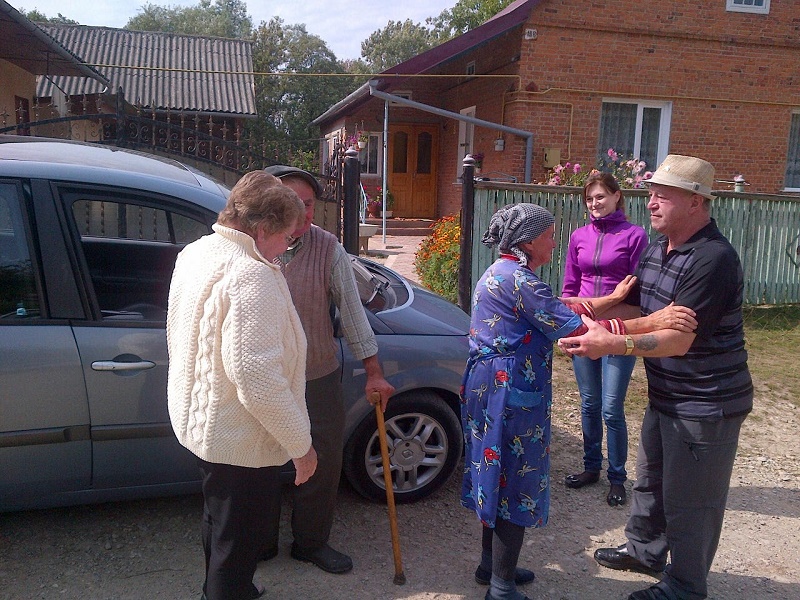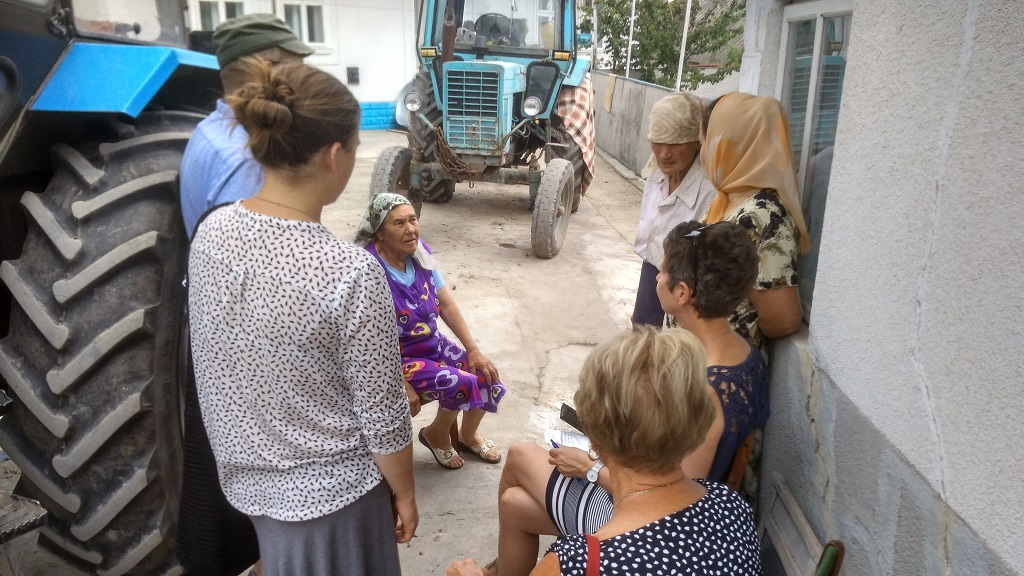Information on Genealogy Tools in Ukraine
A number of resources are available to help you find your relatives or ancestry in Ukraine. I have listed some of them here to help you form a better idea of what can be done. Please also visit our GENEALOGY SERVICES page to see how we can help.

Online Resources
A number of genealogy websites in English exist to help you in your research. Their number and the amount of available material is growing. By the time you are reading this page, you probably have substantial knowledge on what is available on the Internet for your Genealogy Research.
Social Networking Sites
Try looking up your last name on social networking sites. Also look up your last name in its Cyrillic spelling on Facebook in Ukrainian, as an example.
State Archives in Western Ukraine
Archives in Lviv, Ternopil, Ivano-Frankivsk, and Chernivtsi keep most of the vital records from Galicia and Bukovina. State Archives in Ukraine are based on the country’s administrative division. The eastern part of Galicia is now under the administrative jurisdiction of Lviv, Ternopil, and Ivano-Frankivsk. An area around Lviv is part of Lviv Oblast. The oblast is the administrative unit equivalent to a province, or a state. An area around Ternopil is part of Ternopil Oblast, and so on. All vital records from Lviv Oblast are held at the Historical Archives of Lviv. Accordingly, records from Ternopil and Ivano-Frankivsk Oblasts are at the State Archives of Ternopil and Ivano-Frankivsk.
The northern part of the former Austrian province of Bukovina is part of Chernivtsi Oblast, with its own State Archives in Chernivtsi.
Below are emails and websites of the four main archives of Western Ukraine that keep some of the old metrical records. It is a good idea to inquire with them about your records in advance of your planned genealogical trip to Ukraine:
Lviv:
E-mail: tsdial@arch.gov.ua
Web: tsdial.archіves.gov.ua
Ternopil:
E-mail: archive_te@arch.gov.ua
Web: http://www.dato.te.gov.ua
Ivano-Frankivsk:
E-mail: archive_if@arch.gov.ua
Web: if.archives.gov.ua
Chernivtsi:
E-mail: archive_cv@arch.gov.ua
Web: cv.archives.gov.ua
Lutsk:
E-mail: info@davo.voladm.gov.ua.
Web: www.volyn.archives.gov.ua
How State Archives in Ukraine work
State Archives in Ukraine often lack resources to address each and every request from people interested in their family genealogy. They are usually understaffed and underfunded to be able to answer requests for records from individuals. On the other hand, if you visit the archives in person to make a request by filling out their form, the archives can produce available vital records for you, within about a week from the time of your application. In some cases, records can be brought from storage and made available immediately. You would then be able to look through books of birth records to find an entry for your grandmother within a listing of all births for the Roman Catholic community of the town of Rohatyn, for example. As an alternative, you may want to check if these records are also available from online resources, such as the LDS database.
Civil Registry Offices
They keep more recent vital records, usually not older than 75 years old. All older records are turned over to the State Archives. To access information from a Civil Registry Office in Ukraine, a proof of kin relationship is required. Applicant’s passport with the same family name may be sufficient. As with the State Archives, Civil Registry Offices in Ukraine are also based on the principle of territorial division. For example, Buchach is the center of Buchach Rayon (rayon is equivalent to a county) within Ternopil Oblast (oblast is equivalent to province). Therefore, the Civil Registry Office for Buchach Rayon is in the town of Buchach.
Church Records in Churches
Very rarely, churches may keep older records dating before the Second World War. In most cases, these are the records that were hidden by members of the local Ukrainian Catholic community throughout the years of persecution of the Church by the Soviet authorities. When Ukraine gained its independence, such records were brought back into the open to be kept by the local priest.
Telephone Books
They can be found at post offices in small towns. Internet telephone directories for Ukraine are available only for larger cities and are often not accurate. However, as almost everyone in Ukraine these days has a cell phone, phone books listing landline phones are becoming less common.
Local Knowledge
Local residents may be a good source of information about your family. They may even point you to a house where the family still lives. People in smaller villages are very happy to help. With the slow pace of life in small Ukrainian towns, you will soon be the center of attention and swept into a general commotion by the town residents, each with its own version of who you may be related to. People are sincerely interested in helping you. To save time, I suggest that you start from heading to the village Mayor’s office who will make phone calls to the town residents and ask questions for you. People will start turning up at the village office and you will soon have some idea about your relations, or the lack of such, in the town. This strategy works well with small towns and villages, but unfortunately not possible in a large community.
Cemeteries in Ukraine
Cemeteries in Ukraine do not keep records. Do not expect to find a grave by locating it based on a record. Such records do not exist. If a family still lives in the area, they will be able to find a grave of your family member. Otherwise, you may be able to find a tombstone in the older part of the cemetery if a family was able to afford a tombstone or a cross made from stone. In most cases, however, a wooden cross was used to mark the grave, which did not survive.
Ukrainian and Polish Cemeteries are often side by side, or mixed. You will often find Polish parts of cemeteries overgrown by trees and impassable vegetation in the summer.
A number of Jewish cemeteries survived in some communities, such as Brody, Pidhaytsi, Berezhany and many others. There is a remarkably large and well preserved Jewish cemetery in Chernivtsi. Their tombstones are marked with Hebrew letters or, occasionally, inscriptions in Polish or German languages.
